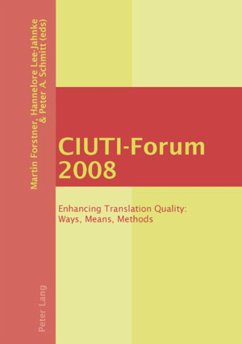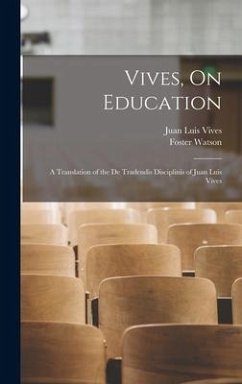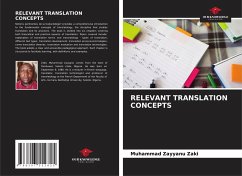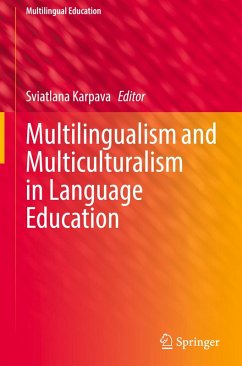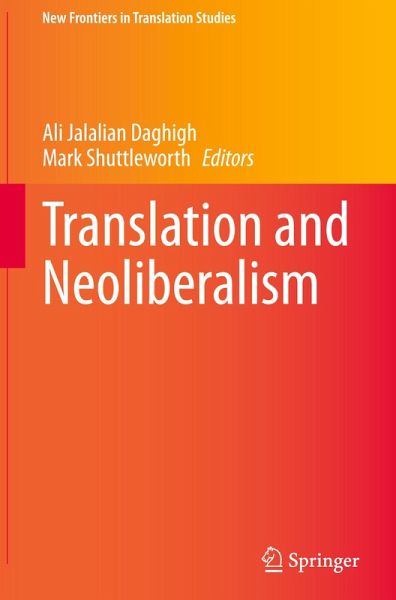
Translation and Neoliberalism

PAYBACK Punkte
57 °P sammeln!
This book explores the intersections of neoliberalism, translation, and interpreting, a scarcely explored topic in the field of translation studies across diverse regions, including Europe, North America, Asia, and Australia, covering four primary themes that offer unique perspectives on how neoliberal ideologies influence translation and interpreting. The first theme uses data triangulation to delve into the influence of market-driven ideologies on translation and interpreting curriculum globally as well as the neoliberal tendencies of the trainees in China and Korea. The second theme investi...
This book explores the intersections of neoliberalism, translation, and interpreting, a scarcely explored topic in the field of translation studies across diverse regions, including Europe, North America, Asia, and Australia, covering four primary themes that offer unique perspectives on how neoliberal ideologies influence translation and interpreting. The first theme uses data triangulation to delve into the influence of market-driven ideologies on translation and interpreting curriculum globally as well as the neoliberal tendencies of the trainees in China and Korea. The second theme investigates the effects of top-down neoliberal policies on translation services and practices in Australia, Canada, and the UAE, examining how these policies influence service quality, working conditions, and the balance between market demands and academic requirements. The third theme assesses the influence of technology and neoliberalism on the translation and interpreting labor market, providing a critical analysis of the automation of translation workflows, the rise of non-standard employment arrangements, and the socio-economic challenges faced by translation professionals. The final theme analyzes the intersection of neoliberalism and translation at the discourse level, employing various approaches including critical discourse analysis and content analysis to explore how neoliberal values manifest in translated texts and practices in China, Iran, and USA. This book is an essential resource for academics, postgraduate students, researchers, policymakers, educators, and practitioners interested in the dynamic interplay between neoliberalism and translation, offering new insights and critical perspectives that contribute to a deeper understanding of the socio-economic forces shaping the field of translation and interpreting.








